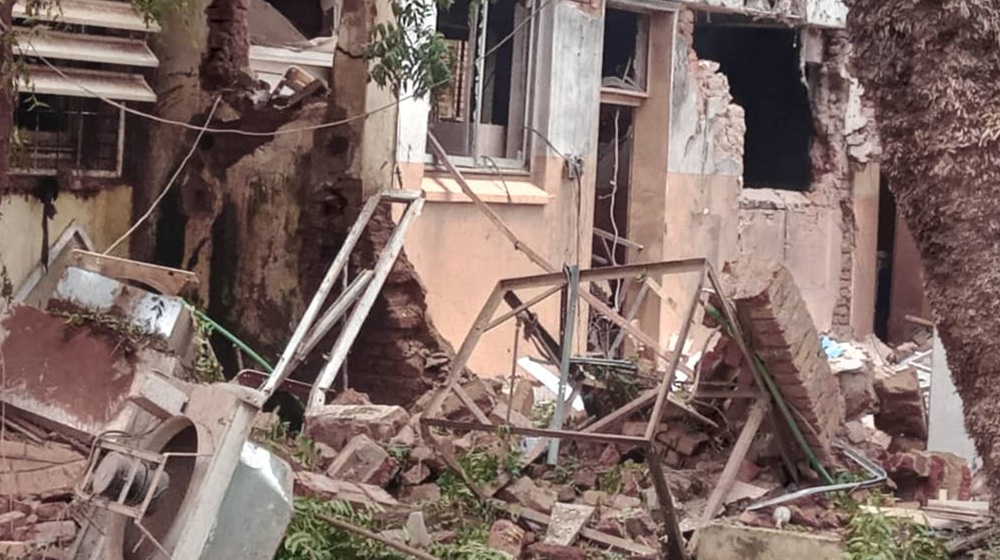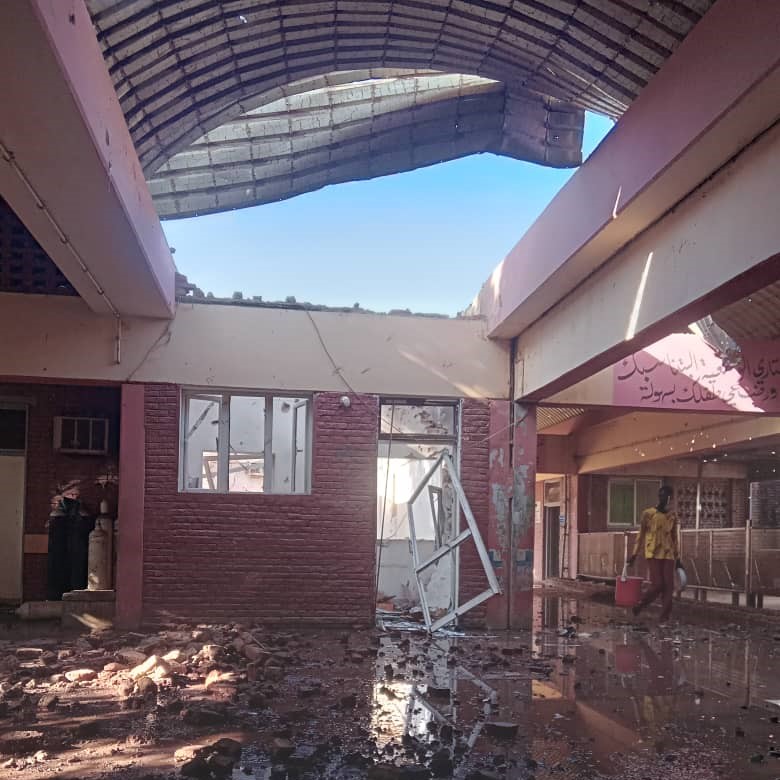News
In Sudan, city’s last remaining hospital shelled: “We need support now”
- 28 October 2024
News
AL FASHER, Sudan – A succession of five artillery shells struck Al-Saudi Maternity Hospital, the last remaining hospital in Al Fasher, on 13 October. The blasts injured 10 medical personnel and destroyed multiple departments, including the pharmacy, emergency department and referral clinic. The operating room, mental health department, and the hospital’s water and energy systems were also damaged.
“I was performing surgery in the hospital when heavy shelling occurred. A mortar hit the hospital. I was so worried because the woman's wounds were open, and everyone was running around me,” Dr. Suhiba, a gynaecologist, told UNFPA, the United Nations sexual and reproductive health agency.
Asma, 27, was in the middle of an antenatal appointment when a shell hit. “I was so scared. The glass from the windows shattered, and I was injured. But I was more scared for my baby,” she said. “The medical team took care of us.”
Medical staff under siege
Al Fasher, the capital city of North Darfur State, has been under siege for months – part of the roiling conflict that erupted in April 2023.
Nationwide, the violence has displaced more than 10 million people. The country faces one of the world’s most severe nutrition crises, and sexual and reproductive health services have been seriously disrupted, factors which together place all pregnant women in the country at risk.
Al Fasher is particularly affected. The city had previously held four public hospitals, a military hospital, a police hospital and two private hospitals; six of the eight hospitals provided maternity health services.
Today, Al-Saudi Maternity Hospital is the last one standing, and it is only partially functional.

The constant bombardments in Al Fasher have depleted medical supplies, and even before the 13 October attack, many of the hospital’s facilities had closed, leaving it struggling to serve a population of some 800,000 civilians.
“Four of my team members were injured in the latest shelling,” said Ahlam Ibrahim, head of the hospital’s mental health department. The department supports survivors of gender-based violence, rates of which have skyrocketed amid the conflict.
“We are here to support people psychologically, but we are tired,” Dr. Ibrahim said. “However, we can’t stop. We are the only ones left to support the women and girls in Al Fasher. We need support now.”
“Every day I think it will be my last day”
Even in disrepair, the hospital is a lifeline, especially for women and girls facing life-threatening obstetric complications.

“I would have died if not for the medical team at the hospital,” 23-year-old Makbola told UNFPA. She had been experiencing pregnancy complications that required obstetric care. “It took me two days to reach here. Fighting continued as I made my way, forcing me to take shelter and continue the next day.”
UNFPA is calling on all parties to the conflict to respect international humanitarian law and prioritize the protection of civilians and the infrastructure they rely on. With resources from the UNFPA Emergency Fund, the United Nations Central Emergency Response Fund, and the governments of Canada and the UK, UNFPA has been able to provide the hospital with three months’ worth of fuel as well as solar panels. UNFPA has also rehabilitated the outpatient ward, which had been demolished in an earlier attack, and is helping to fund maternity ward personnel, support that will continue until the end of December.
Still, the window to avert an even larger catastrophe is rapidly closing, and the needs are greater than ever.
“Most of the medical team is still working in the hospital despite the situation and the shelling,” said Dr. Salma, a medical officer. “The rate of births in the hospital has increased recently.”
Wafa, 30, was able to deliver a healthy baby boy by Caesarean section, but she noted: “Many women were waiting for their turn.”
“The situation is very difficult. They are shelling us every day,” Dr. Suhiba said. “Every day I think it will be my last day. But what can I do? I have to stay and help my people.”